COPPER HARBOR -- Two candidates running for Mike Lahti's 110th District State Representative seat both hail from the Keweenaw -- Scott Dianda, Democrat, of Calumet, and Matt Huuki, Republican, of Houghton. The two spoke on issues that matter to them and listened to residents' concerns during a public forum held in mid-October in Copper Harbor.
 Scott Dianda of Calumet, Democratic candidate for 110th District State Representative, addresses a group of residents in the Copper Harbor Community Building during a forum held here in mid-October. Seated at the table, at right, is Matt Huuki of Houghton, Republican candidate for this position. (Photos by Keweenaw Now)
Scott Dianda of Calumet, Democratic candidate for 110th District State Representative, addresses a group of residents in the Copper Harbor Community Building during a forum held here in mid-October. Seated at the table, at right, is Matt Huuki of Houghton, Republican candidate for this position. (Photos by Keweenaw Now)Lahti's seat is open because he is a candidate for the State Senate, 38th District.
Both Dianda and Huuki cited jobs as a priority for the Upper Peninsula.
Dianda, who was born and raised in Calumet, where he previously ran his family's party store business, said his most recent work -- eight years as a state employee (heavy equipment operator) for the Michigan Department of Transportation -- gave him experience with many issues of state government. During the past two years, he added, as an elected representative for the Michigan State Employees Association, Dianda traveled to 83 counties and worked with all 19 departments of the state, learning a great deal about how state government works and how it needs reform in some areas as well.
Dianda pointed out that the Upper Peninsula no longer has much agriculture. The potato farms it had in the past are gone. The lumber industry needs to be expanded. Another, controversial, issue up here is the mining.
"The Kennecott mine in Marquette County is taking place," he said. "Construction is going on right now, and they are going and developing that area."
Dianda said the district needs a representative who will consider these issues of jobs, development and the economy while making sure the people are protected by regulation that can assure this area remains pristine, no matter what businesses come up here.
"That's important to me because I live here," Dianda said. "I worked in Copper Harbor, so tourism to me means a lot because it helped me go on to higher education."
Dianda noted he spent summers in Keweenaw County and worked in the Delaware mine as a tour guide and also at the Copper Harbor Lighthouse while a teenager.
"Our area is great. It's a beautiful area. We're blessed to have what we have up here," Dianda said. "I want to see us succeed, and I want to see us grow."
Dianda said he is glad to see people move here and he welcomed the new residents in the audience.
"We've got so many homes that need to be occupied, so we're glad to see people come from outside the area," he said.
Matt Huuki, a small business owner (auto glass and auto repair) in Atlantic Mine, began by telling the Copper Harbor audience he is not opposed to tourism but people need base industries in order to support it. Huuki noted Baraga and Ontonagon counties -- historically the centers for base industries -- now have some of the highest unemployment in the nation.
"That's unacceptable," he said.
 Matt Huuki, standing, right, addresses Copper Harbor residents during a forum for the candidates running for the 110th District State Representative position now held by Mike Lahti, who is running for State Senator. Scott Dianda, the Democratic candidate, is seated at left. At far left is Janet Shea, Copper Harbor business owner, who organized the forum.
Matt Huuki, standing, right, addresses Copper Harbor residents during a forum for the candidates running for the 110th District State Representative position now held by Mike Lahti, who is running for State Senator. Scott Dianda, the Democratic candidate, is seated at left. At far left is Janet Shea, Copper Harbor business owner, who organized the forum."I've watched the battle with Kennecott. Now I do believe these mines have to be clean," Hukki said. "They have to be watched -- (to make sure) they're not destroying our our way of life and our beautiful environment."
Huuki said he believed Kennecott would make a difference in Baraga County. His example of mines being able to operate right next to beautiful natural resources was the White Pine mine.
"My Dad worked at White Pine his whole life. He actually got killed at White Pine in '87, but he loved that job," Huuki said. "White Pine is right next to Porcupine (Mountains) State Park. That mine employed 3200 people at one point in time -- good paying jobs."
Huuki said he thought Porcupine Mountains State Park was healthier when that mine was operating, judging from his childhood memory of long lines at the ski hill. Hukki expressed his view that it's the base industries that create money that gets spent in recreation areas.
Huuki also gave examples of members of his family who attended Michigan Tech University but had to leave the area to get jobs. He estimated that was true for 90 percent of Michigan Tech grads. Huuki said he believes mining will give Michigan Tech "a purpose for being here."
Huuki also talked about his interest in ATVs.
"I want to see ATVing become as popular and as attractive as snowmobiling," Huuki said. "I want to see that become another avenue of revenue for us, especially up here in the Keweenaw."
Janet Shea, Copper Harbor business owner, who organized the forum and invited Dianda and Huuki to talk, said Copper Harbor is actually looking for a kind of industry that would meld into tourism.
Huuki said he believed 500 mining jobs could lead to a wave of jobs -- potentially 1000 or 1500 jobs -- in local businesses such as machine shops. On the other hand, he said he believed bio-mass is an industry that is not sustainable because it would put mill jobs in jeopardy and it has to be subsidized.
Joanne Thomas of Allouez questioned Huuki on his quote of 500 jobs, noting Kennecott had projected 75 local jobs. Huuki said he was talking about Orvana Minerals planning to hire 500. (Orvana's Copperwood Project is located 30 miles from the White Pine Mine, near Lake Superior.) Huuki added he believes Kennecott is starting small but those jobs will expand out.
Dianda answered Shea's question by saying he felt the tourism industry in Keweenaw County -- snowmobiling and skiing, for example -- would continue to expand.
"I don't think we're waiting for something else to come in," Dianda said. "We have things in this county that are working, and we've got to grow those things. The tourist dollars that come in here are very important."
Dianda added Michigan Tech is bringing a lot of people and research to the area, including Ford Motor Company and General Electric. These are people who are going to buy homes, put children in schools and take advantage of recreational opportunities in the area, he said.
"The more people we bring to the area, the better we all have it," Dianda said.
Dianda said he also believed more could be done in Keweenaw County in areas such as Mt. Horace Greeley, near Gratiot Lake. A longer -- 30-40-year tax break -- could encourage an industry to hire local people. As for the mining, he said we have to be sure it's done right. Another possibility is agriculture.
"Agriculture is something that we do not take advantage of," Dianda said. "It's a long-term focus and it starts with the educational system."
Dianda gave the example of blueberry bog at Rice Lake and the historic example of people who, in the past, grew potatoes and winter vegetables up here. We should do as other states are doing and promote growing local food, he said.
Shea said Keweenaw County also needs a good high-tech infrastructure -- and possibly a trade school -- to attract young people to come here or stay here to work.
Dianda agreed that high-tech infrastructure is needed to attract people to locate in the area. To Huuki's argument for "base industry," Dianda replied that, while industry is needed, it shouldn't shadow everything else. He agreed that many people up here are good at trades. Vocational education and cottage industries should be encouraged.
"The one key thing we have to remember in this election," Dianda said, "is that we can't just elect people who say they're just going to go out and start slashing state government."
Slashing the state budget threatens important services like the Michigan Economic Development Corporation (which helps small businesses), transportation and the school system. The state needs to prioritize with its budget, Dianda noted.
Elsebet Jegstrup, who recently moved to the Copper Harbor area, said she believed both government and private service industries -- insurance companies, for example -- could exist in Keweenaw County without harming the environment.
"It seems to me we have to call the service industry also a base industry because there is more service industry today," Jegstrup said.
Dianda said elected officials need to move forward to communicate the needs of the people to the state government.
Peg Kauppi, co-owner of the Mariner North in Copper Harbor, asked Dianda how he would be able to get people to listen to him in Lansing.
Dianda said his experience working with every state department in Lansing has made him known to state officials and given him the knowledge of state government needed for the representative's job.
In a discussion about stimulus money and what it was used for, Dick Powers of Copper Harbor, former Grant Township supervisor, noted some of the money was used for signs, culverts and guard rails that weren't needed, while a ditch that needed repair didn't receive funding.
"We can't keep living in the past," Powers said. "We 've got to think, What can we bring up here that's different?"
As an example, he noted Michigan Tech, formerly a School of Mines, has changed for the better with its emphasis on other programs and modern technology. Copper Harbor needs technology to attract people, Powers added.
"We haven't got a good communications system yet," Powers said.
One really successful program in Copper Harbor is the trail system -- both motorized and non-motorized -- for snowmobiling and cross-country skiing in the winter and biking in the warmer seasons.
Sam Raymond, owner of the Keweenaw Adventure Company in Copper Harbor, an outfitter and guide for silent sports such as mountain biking and kayaking, and vice-president of the non-profit Copper Harbor Trails Club, said he now employs 13 people in his business.
 During the candidates forum, Sam Raymond, standing, foreground, owner of the Keweenaw Adventure Company in Copper Harbor and vice-president of the Copper Harbor Trails Club, speaks about the success of his company and especially the recent popularity of the mountain biking trails in Copper Harbor.
During the candidates forum, Sam Raymond, standing, foreground, owner of the Keweenaw Adventure Company in Copper Harbor and vice-president of the Copper Harbor Trails Club, speaks about the success of his company and especially the recent popularity of the mountain biking trails in Copper Harbor."I've been doing this now for 12 years," Raymond said. "I'm really pleased to say that, despite this recession and downturn in the economy, the last three years have been my best three years in business."
Raymond said a big part of his business growth has been the trails.
"We've been getting national recognition for our mountain bike trail system. We're part of the International Mountain Biking Association and they've designated Copper Harbor as what they call an 'epic ride' -- which is based on the quality of the trails, the terrain, the location, the scenery," Raymond explained. "We're one of 48 epic rides in the world, so they consider us to be some of the best."
Especially this summer, he added, people from all over the country have been seeking out Copper Harbor as a mountain biking destination.
Joanne Thomas of Allouez said Raymond's success is a testament to the growing potential in non-intrusive industries that this region is uniquely suited to expand.
"This is why it is crucial that all protections of our natural resources and habitat are continued and strengthened," Thomas said. "The attractions that draw most folks to this area to vacation and set up summer residences are the natural beauty and the still spectacular environment for silent sports -- not the devastation that can easily result from invasive mining and other polluting industries."
Thomas also mentioned the growth of the arts in the Keweenaw, with an increased number of art galleries and cultural activities.
Dianda said he was also impressed by this growth in his home town of Calumet, noting the example of the Vertin Building with its large gallery and art studios.
Shea pointed out to the candidates that one problem for tourism, which includes the trails, is that Keweenaw County has very little public access since so much of the land is privately owned and securing easements on that land depends on negotiating with landowners and obtaining funding to purchase easements.
Don Kauppi, co-owner of the Mariner North, who is active in working to obtain private property easements for trails, said a Recreation Committee including both Keweenaw and Houghton counties is hoping to establish and define a position for a qualified person to negotiate with landowners for both motorized and non-motorized trails. Some trails start as far south as Toivola.
"A government body can't do that," Kauppi said.
It has to be an individual with qualifications to evaluate land, negotiate with landowners and access a fund to pay for the easements, he explained.
"We've got to define our product (the terrain) -- whether it's motorized or non-motorized, so everybody knows where they're allowed to be -- define, sign and patrol," Kauppi said.
The cooperation of the sheriffs' departments and the DNRE (Department of Natural Resources and Environment) is necessary to protect the property owners through enforcement.
The problem with the trails on the state-owned Keweenaw Tip property (both motorized and non-motorized) is there is no legal access to connect to the trails up there because of private property. Ideally they would like to have a mountain bike trail from Eagle Harbor to Keweenaw Point, Kauppi said.
"We understand from Fort Wilkins that the State Parks Department is going to apply for some funding (to connect to those trails)," Kauppi added, "so we're hoping that if one of these guys gets in office they can help with that application."
Kauppi said he knows both candidates personally and considers them both good people.
One local resident asked the candidates if they would fight for Lake Superior -- which he said is "the best thing we have going up here."
Dianda said he considered Asian Carp one of the biggest Great Lakes issues.
"Those things have to be stopped in Chicago," he said. "It should be a non-issue."
Citing the recent oils spills in the Gulf and near Kalamazoo, Dianda also noted his opposition to drilling for oil in the Great Lakes.
Dianda said he believes the Pure Michigan ads should focus on the 110th District of the Upper Peninsula -- pictures of people on the bike trails, people fishing -- as they have done for recreational areas near Traverse City, for example. And these ads need to be funded.
"You've got four representatives in the UP. There's 106 of them south of the Mackinac Bridge," Dianda noted.
Dianda emphasized the importance of having representatives in Lansing who will see that the state budget cuts do not cut the valuable funding needed in the U.P.
"We are going to be the ones that will feel the effect if they start downsizing any type of state government," he said.
After the forum, both candidates stayed to chat with individual residents.
"I think a benefit to this meeting was in exposing the candidates to the interests and concerns of Keweenaw residents," Joanne Thomas noted. "The 'debate' was comfortable, friendly and informative."
Click here to visit Scott Dianda's Web site.
Click here to visit Matt Huuki's Web site.









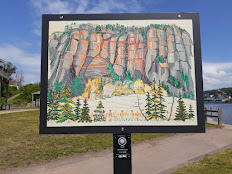





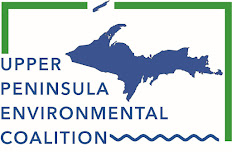

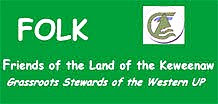
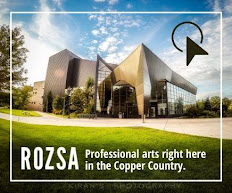

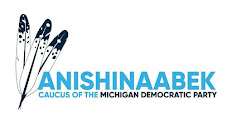





















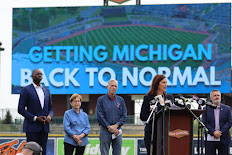


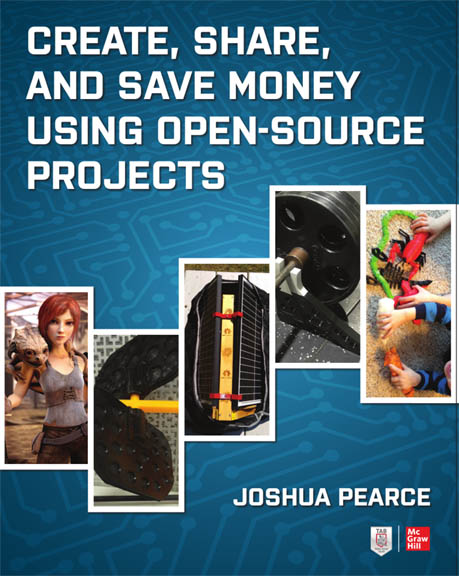

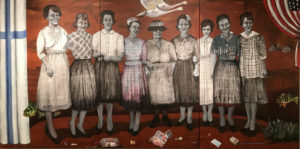
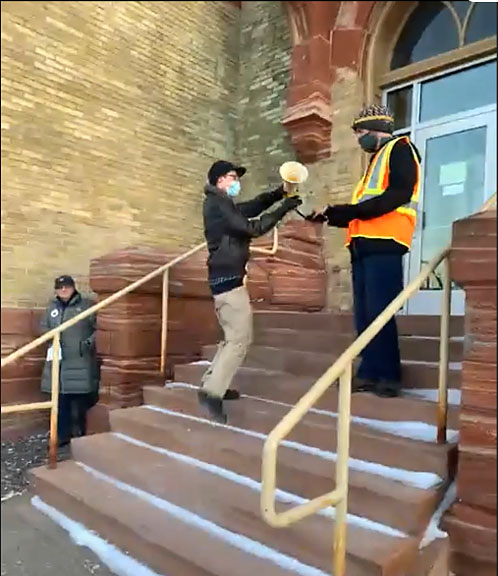
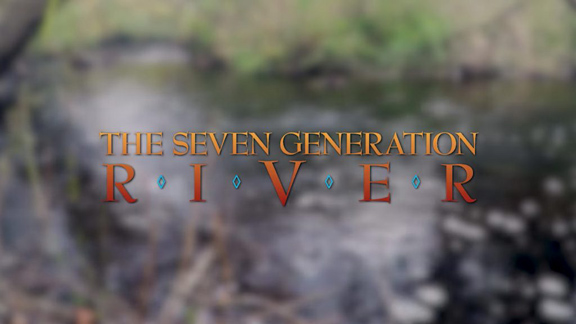


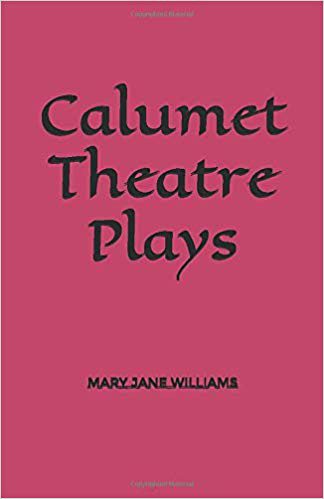
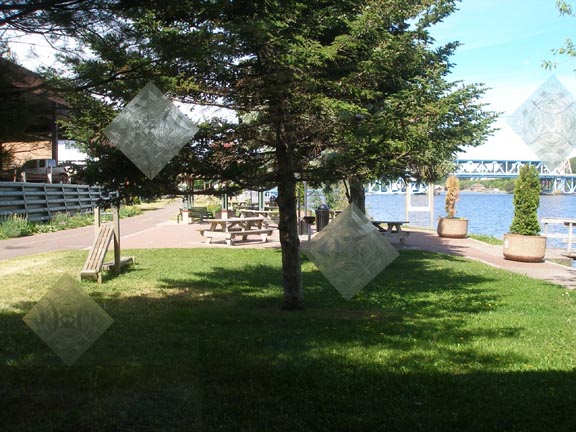




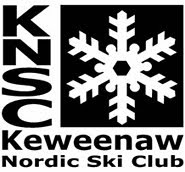


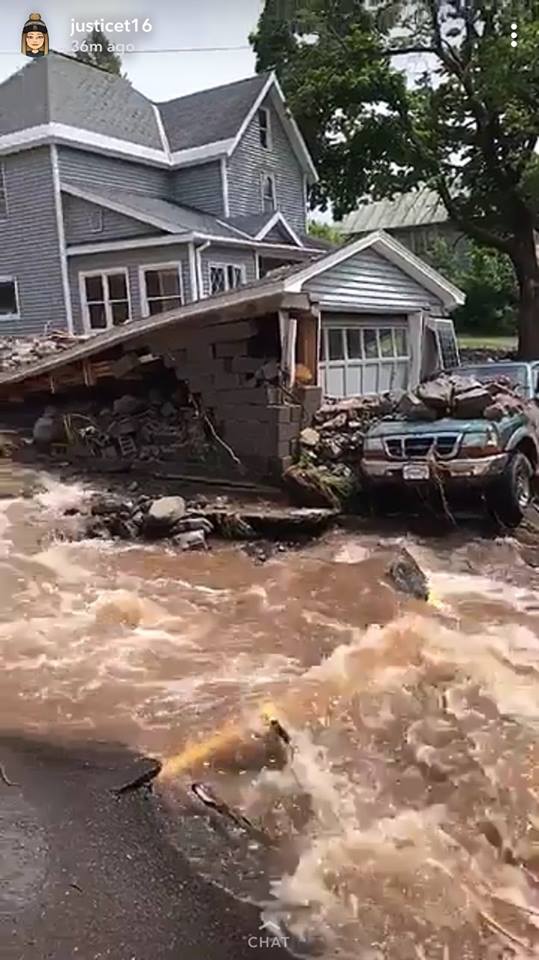

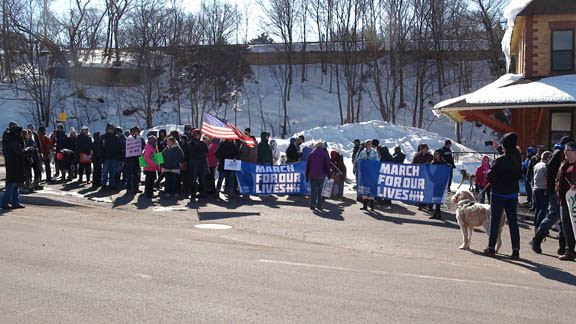
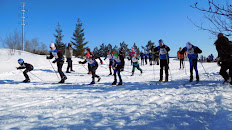

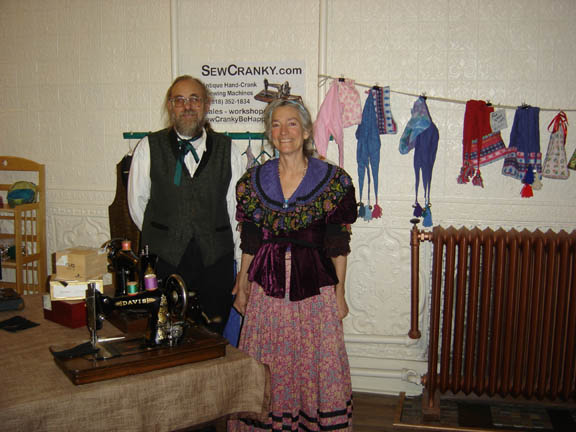
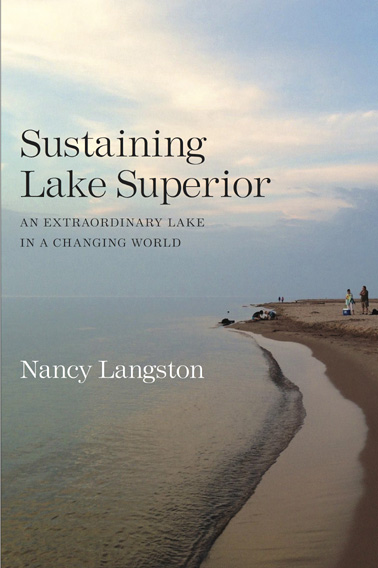







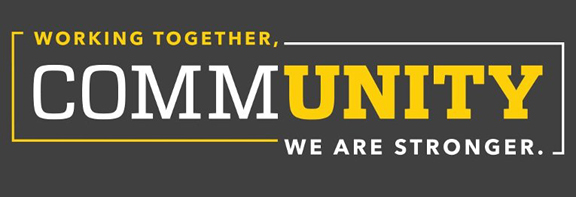
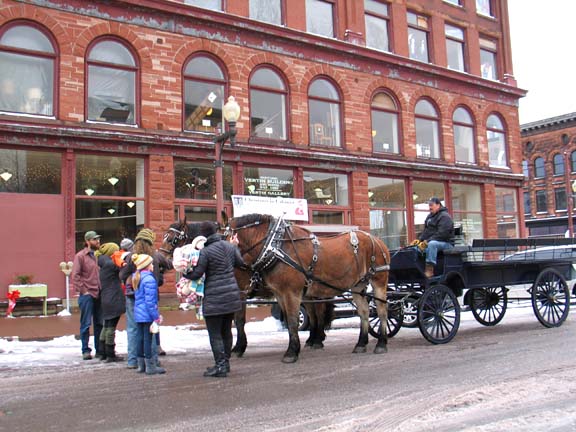

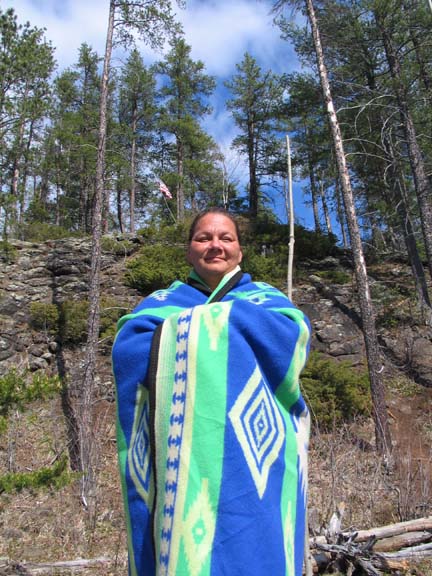


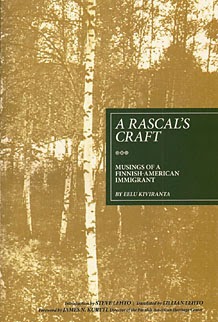


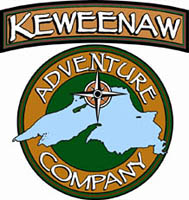









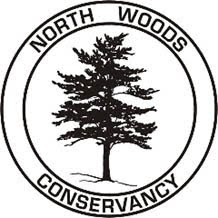

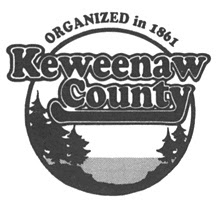

No comments:
Post a Comment